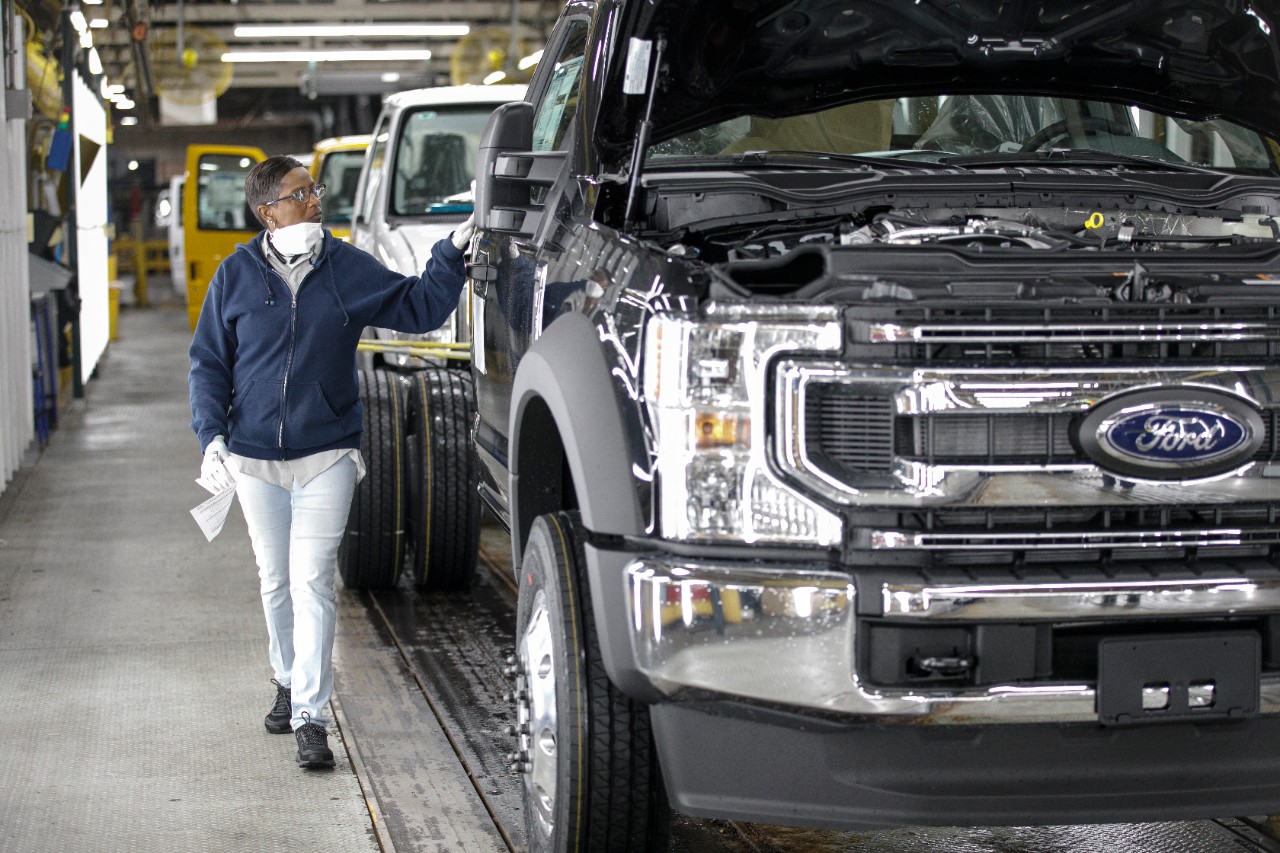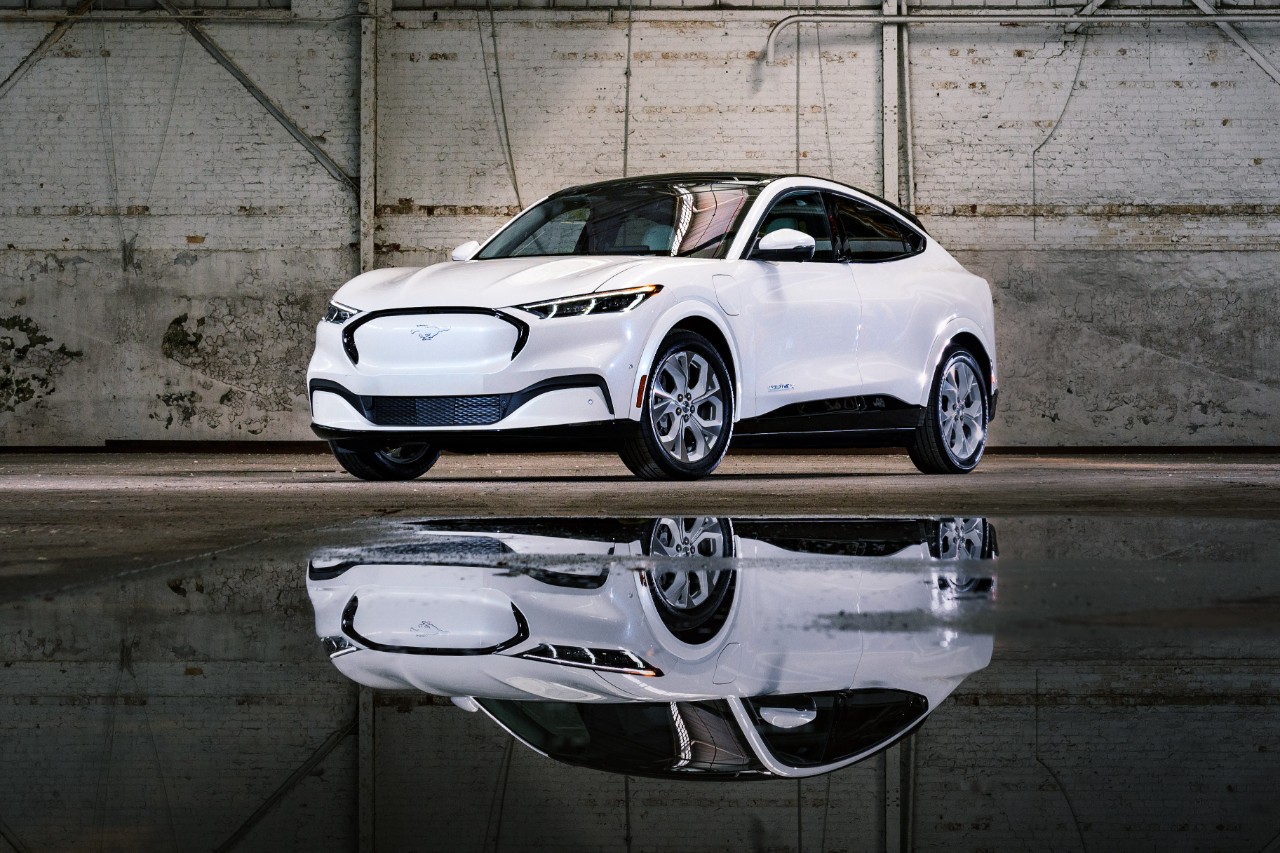Ford Motor Company (F +0.40%) said today that its sales in China fell 38% in June from a year ago, to 62,057 vehicles, as Chinese consumers continued to turn away from what they see as an out-of-date Ford product lineup.
Year to date, Ford's sales in China are down 25% from the first half of 2017. By contrast, Ford's old Detroit rival, General Motors (GM +1.30%), posted a 4.4% sales increase in China over the same period.

Sales of Ford's Kuga, the Chinese version of the Escape, have fallen by more than half over the last three years. Image source: Ford Motor Company.
The raw numbers
For a quick primer, Ford reports four different categories of sales in China:
- Ford-brand passenger vehicles produced by its joint venture with Chinese automaker Changan Automobile. The joint venture is called Changan Ford (CAF).
- Trucks and commercial vehicles produced in conjunction with another Chinese automaker, Jiangling Motors (JMC). Those trucks include three Ford models as well as several others sold under the Yusheng and JMC brands.
- Ford-brand vehicles that are imported into China. These include the Mustang, the Explorer, the F-150 Raptor, and the performance versions (ST and RS) of the Focus.
- Lincoln-brand vehicles, all of which are currently imported into China.
Through the first half of the year, only Lincoln showed an increase in sales:
| Category | June 2018 sales | Change vs. June 2018 | H1 2018 sales | Change vs. H1 2017 |
|---|---|---|---|---|
| CAF | 33,132 | (53%) | 232,320 | (35%) |
| JMC | 22,806 | (7%) | 135,961 | (5%) |
| Lincoln | 4,350 | 12% | 24,314 | 4% |
| Imported Ford vehicles | 1,769 | (1%) | 7,848 | (20%) |
| TOTAL | 62,307 | (38%) | 400,443 | (25%) |
Data source: Ford Motor Company.
Why are Ford's sales down so much?
The competition in China's huge new-car market is fierce. Nearly every global automaker you've ever heard of does business in China, alongside a slew of domestic Chinese carmakers that range from smallish start-ups to large enterprises with global ambitions of their own. The thing to know is that the sheer number of companies competing in the market means that Chinese customers nearly always have fresh new products to choose from -- no matter what kind of vehicle they're looking to purchase.
The global automakers that have managed to sustain success in China are those that stay in close tune with the market, introducing new models and variants frequently enough to keep consumers engaged. That has included GM, which has recently found good sales growth at both the low and high ends of the Chinese new-car market.
Ford's problem, simply put, is that it hasn't done that. For instance, just three years ago, sales of the Ford Kuga -- the Chinese version of the Escape -- were growing nicely on strong Chinese demand for high-quality compact SUVs. Ford sold 65,767 Kugas in the first half of 2015, and at the time, it was looking forward to further growth. But fast-forward just three years later, and we find that Ford sold just 25,155 Kugas in the first half of 2018 -- a 62% decline.
That story has played out over and over in Ford's lineup. Even though the Kuga was given a facelift not long ago, Chinese customers now seem to see it -- and other Fords -- as old news.
Ford is prepping a slew of new products for China
Ford says it isn't planning to give up on China, despite the steep decline in sales.
"We always knew it would be a challenging year for us given our position in the product cycle; however, we are intensely focused on our 'In China, For China' strategy," Ford's China chief, Peter Fleet, said in a statement. "As we reposition our business in the market, we are working closely with our partners to strengthen our core business, improve our operational fitness and capitalize on emerging market opportunities."
Ford's "China 2025" plan calls for 50 new or revamped products for China between now and 2025. The first two, the revamped 2018 Mustang and an off-road version of the Ranger pickup called the Wildtrak, have already been launched in China. They'll be followed later this year by two revamped Lincoln SUVs and all-new versions of two of Ford's biggest sellers: the Focus, and a lower-priced China-only compact called the Escort.
Those will help. But it will probably take more new products, and more time, for Ford to recover to the level of sales it enjoyed in China just a few years ago. Ford shareholders should be prepared for the likelihood that this will be a long-term project.







